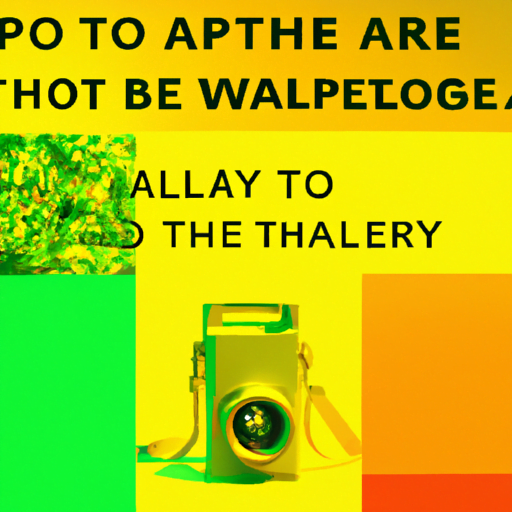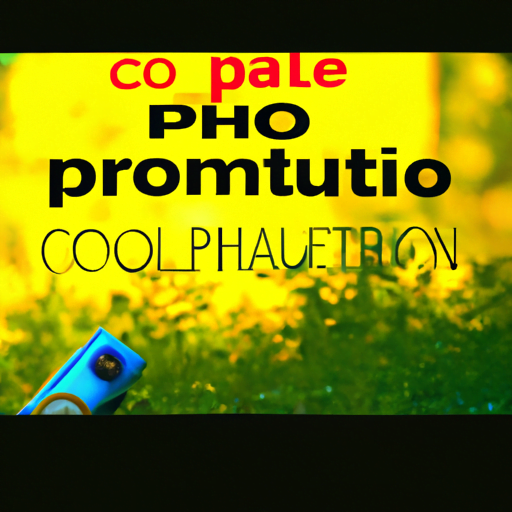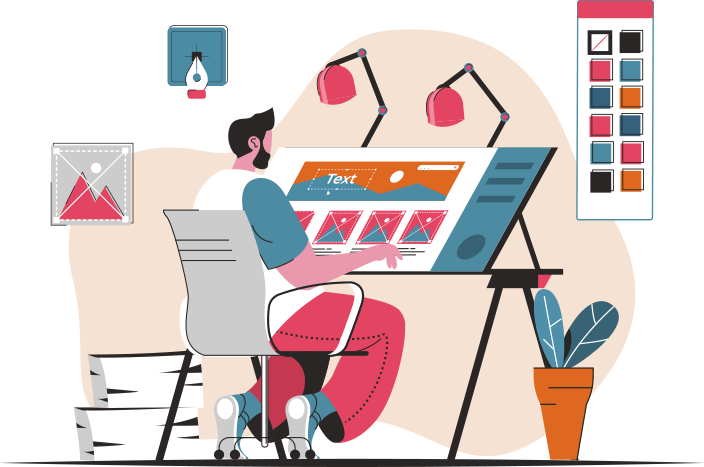
-
Table of Contents
The Role of Typography in Environmental Awareness Campaigns

Typography plays a crucial role in environmental awareness campaigns. It is not just about choosing the right font or making text visually appealing; typography can convey powerful messages, evoke emotions, and influence behavior. In this article, we will explore the impact of typography in environmental campaigns and how it can effectively communicate messages to inspire action.
The Power of Typography in Environmental Messaging
Typography is more than just letters on a page; it is a visual language that can shape perceptions and attitudes. When it comes to environmental awareness campaigns, typography can be a powerful tool to convey messages and create a sense of urgency. Here are some key reasons why typography is essential in this context:
- Creating Emotional Connections: Typography can evoke emotions and create a connection between the audience and the cause. By using the right combination of fonts, colors, and layouts, designers can elicit empathy, concern, or even outrage, which can motivate individuals to take action.
- Enhancing Readability: Clear and legible typography is crucial for effective communication. Environmental campaigns often involve complex information and data. By using appropriate fonts and layouts, designers can ensure that the message is easily understood and retained by the audience.
- Establishing Brand Identity: Typography plays a significant role in establishing a brand identity for environmental organizations and campaigns. Consistent use of fonts and visual elements helps create recognition and builds trust among the audience.
Case Studies: Typography in Action
Let’s explore some real-world examples of how typography has been used effectively in environmental awareness campaigns:
1. The “Save the Bees” Campaign
The “Save the Bees” campaign, initiated by a non-profit organization, aimed to raise awareness about the decline of bee populations and the importance of pollinators in our ecosystem. The typography used in this campaign played a crucial role in capturing attention and conveying the urgency of the issue.
The campaign utilized bold and vibrant typography with a combination of sans-serif and script fonts. The use of bright yellow and black colors, reminiscent of bees, helped create a visual connection to the cause. The typography was strategically placed on billboards, posters, and social media graphics, ensuring maximum visibility and impact.
2. The “Plastic Free July” Campaign
The “Plastic Free July” campaign is an annual global movement that encourages individuals to reduce their plastic consumption. Typography played a significant role in this campaign by effectively communicating the message and inspiring behavior change.
The campaign used a combination of bold and clean typography with a sans-serif font. The use of earthy colors, such as green and blue, created a sense of environmental consciousness. The typography was prominently featured on reusable bags, social media graphics, and educational materials, reminding individuals of the impact of plastic on the environment and encouraging them to make sustainable choices.
The Role of Typography in Behavior Change
Typography can influence behavior and drive action. When it comes to environmental awareness campaigns, typography can play a crucial role in motivating individuals to adopt sustainable practices. Here’s how typography can contribute to behavior change:
- Call to Action: Typography can be used to create compelling calls to action. By using action-oriented words and visually appealing typography, campaigns can encourage individuals to make a difference. For example, using phrases like “Join the Movement” or “Take Action Now” in bold and eye-catching fonts can inspire individuals to get involved.
- Highlighting Key Messages: Typography can be used to emphasize key messages and information. By using larger fonts, bold styles, or different colors, designers can draw attention to critical facts or statistics, making them more memorable and impactful.
- Visual Hierarchy: Typography helps establish a visual hierarchy, guiding the audience’s attention to the most important information. By using different font sizes, weights, and styles, designers can ensure that the message is effectively communicated and understood.
Conclusion
Typography plays a vital role in environmental awareness campaigns. It goes beyond aesthetics and can effectively convey messages, evoke emotions, and drive behavior change. By carefully selecting fonts, colors, and layouts, designers can create powerful visual narratives that inspire action and raise awareness about environmental issues. Whether it’s through creating emotional connections, enhancing readability, or establishing brand identity, typography is a valuable tool in the fight for a sustainable future.
